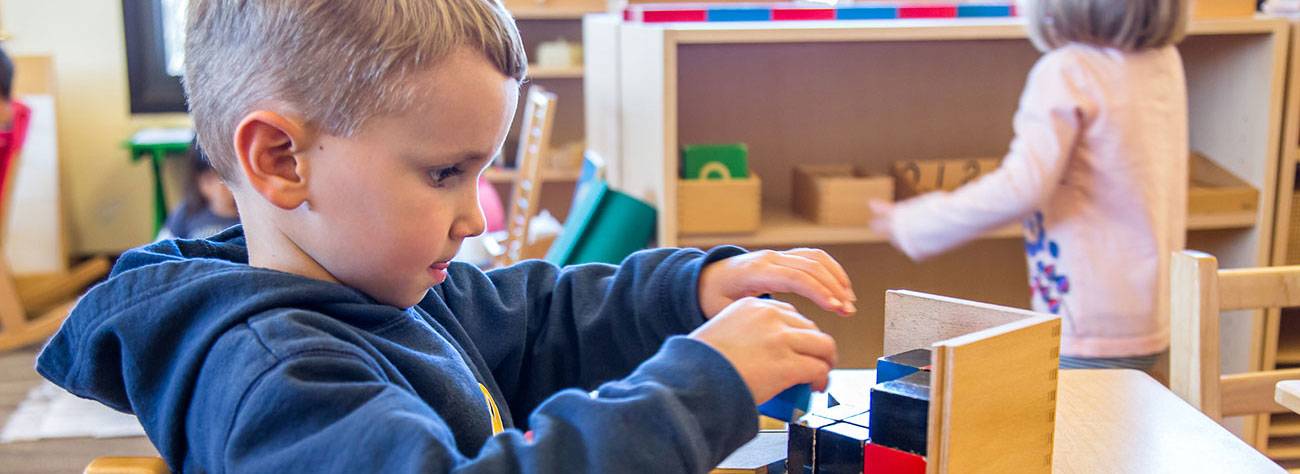Curriculum
The Montessori curriculum seeks to promote a global perspective. It takes an integrated, thematic approach that ties the separate disciplines together into studies of the physical universe, the world of nature, and the human experience. In this way, one lesson leads to many others. Montessori Methodology provides hands-on materials to clearly demonstrate abstract concepts in a concrete manner, so children become confident in their understanding. All aspects of the curriculum are integrated into a meaningful whole that is academically rich and challenging.
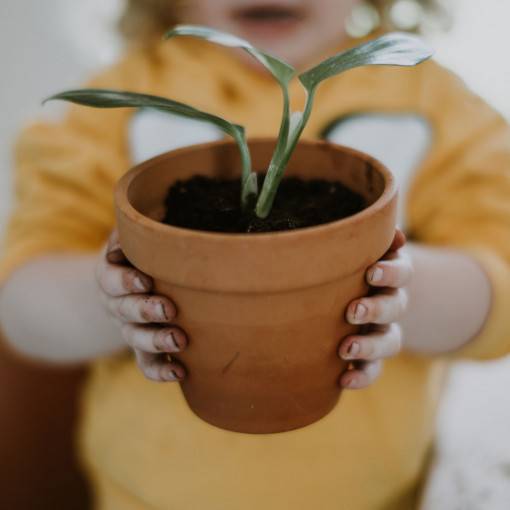
Practical Life
Children act and work on real life tasks that foster independence, coordination, order and concentration. It is the “doorway to the Montessori Curriculum.” The Practical Life area contains variety of items commonly used in the tasks of daily living, like eating, dressing, and cleaning. The materials are also designed to help teach skills involved with caring for the environment and the self, to encourage responsibility and promote high self-esteem. Children gain independence by mastering practical life exercises.
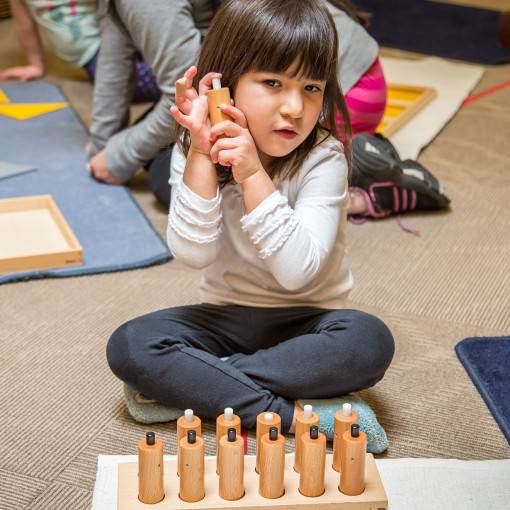
Sensorial
Senses are the “doorway to the mind.” They are also the starting point for intellectual growth. Children participate in careful observation requiring identification of similarities and contrasts. Each sensorial material isolates one defining quality such as color, shape, size, sound, texture, or scent. By mastering sensorial exercises, Children emerge better prepared for future learning in math, language, and science.
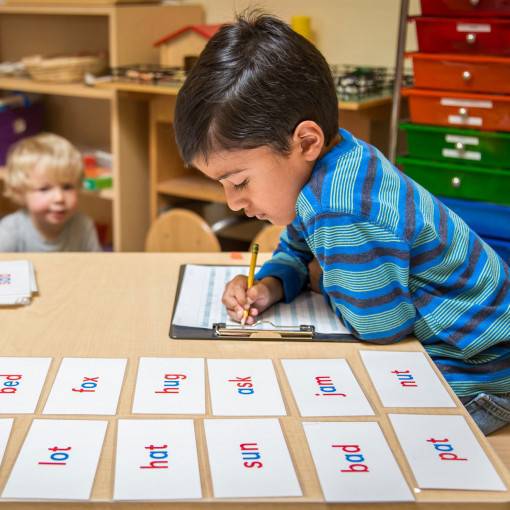
Language
Language development activities foster vocabulary development, communication skills, writing and reading readiness. Language activities include a variety of reading materials, phonetic analysis, word skills and reading, as well as, materials for the refinement of motor control for writing. Writing precedes reading in the Montessori Method, as the children explore with drawing and forming letters. The child begins by exploring the sounds that compose words and by relating them to the letters of the alphabet.
Pre-writing skills include preparation of the muscles to hold a pencil, trace outlines and to control the pressure when using a pencil. Reading skills include the use of sandpaper letters, letter sounds, pictures, blends and digraphs, and long and short vowel patterns.
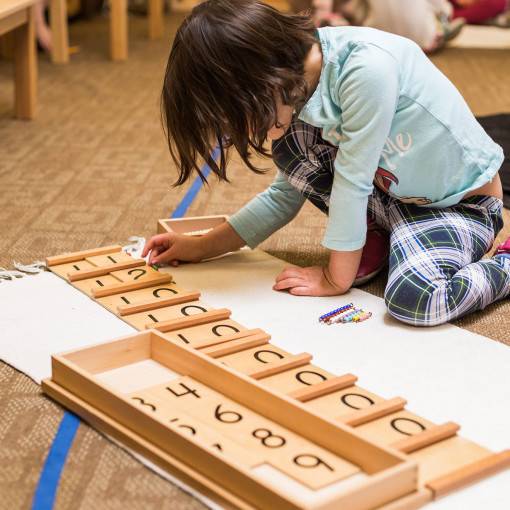
Mathematics
The central purpose of the Preschool math materials is to lay the foundation for later cognitive development and to prepare for the gradual transition to abstract thinking. Montessori curriculum uses hands-on learning materials that make abstract concepts clear and concrete. Children will learn to recognize numerals, counting sets for numerals, addition, subtraction, skip counting, multiplication, division, measuring, and fractions.
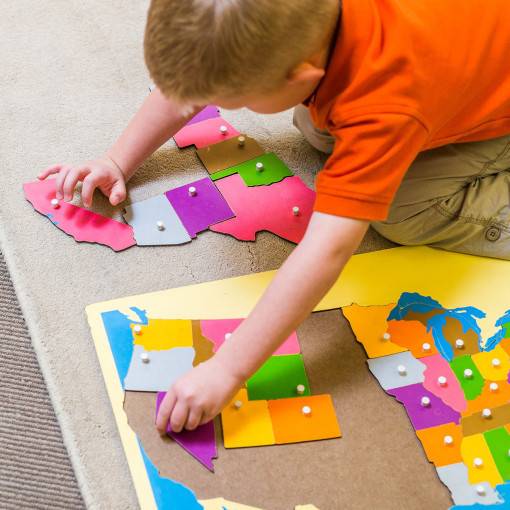
Sciences, Geography and Arts
Science is an integral element of the Montessori curriculum. It represents a way of life: a clear-thinking approach to gathering information and problem solving. It includes botany, zoology, chemistry, physics, geology and astronomy.
History and Geography begins with maps and names of continents and countries and subsequently learning about the world’s cultures.
Music and Arts offer children ways to express themselves, their feelings, and ideas while developing their fine and gross-motor skills.

